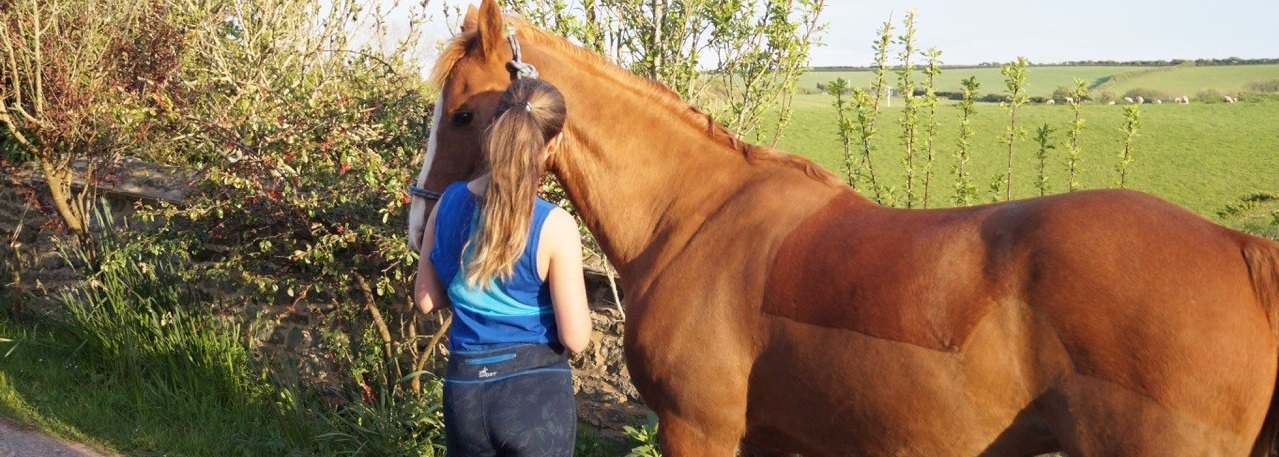
I bought sprout out of a field in the Cotswolds as a shaggy 5 year old, who lacked muscle, work ethic and discipline. From the word ‘go’ he put up a fight, whether it be through injury or tantrums. That said, he was started late in life, and had May-November 2013 off with a fractured pedal bone. By the time he was back in full work at rising 7 years old, he had given me numerous broken bones, bruises and tears as a result of being cooped up on box rest for 6 months.
Tip one: invest in cricket pads as soon as the vets mention the words “in hand walking”.
Moving on, once back in work and given something to focus on, Sprout settled down and although he was very opinionated, it challenged me to continually find new ways of schooling. My favourite exercises with baby Sprout, and still today are figure 8’s with downwards transitions over the centre line; shallow loops which can start to introduce lateral work; and polework grids to get sprout aware of his feet! Tip two: Vary your schooling. Keeping young minds occupied and enjoying work can minimise tantrums and enhance focus!
Groundwork is an essential part for any young horse’s education, in fact I still have sessions on the ground, where I teach Sprout to “Park”, which entails him respecting my personal space and moving when asked, not because he feels like it. First I halt him in a space, then if he steps forward, I push him back, if he moves to the side, I push him back over, et cetera, et cetera. It takes about 10 to 15 minutes normally because he has a “large personality” as people like to say, but it does work, and he respects my personal space, which is very important in both leading and doing everyday things like tacking up or grooming! So top tip three: Establish your ground rules as the basis of your relationship.
I’m trying to keep this short so will leave one last nugget of wisdom. Take your time bringing a young horse through the levels. Nothing is achieved through rushing, and the risk of injury or losing confidence is a lot higher. By taking the time to cover and perfect the basics, you're giving your horse a better foundation to build upon, and you'll know each other a lot better!
To sum things up, here are my top tips for bringing on a young horse:
Tip one: Prioritise your safety, you're of no use to anybody in bed with a concussion!
Tip two: Vary your schooling. Keeping young minds occupied and enjoying work can minimise tantrums and enhance focus!
Tip three: Establish your ground rules as the basis of your relationship.
Tip four: Don't rush! Take your time and the rest will follow a lot quicker than skipping the basics.
Romy x
